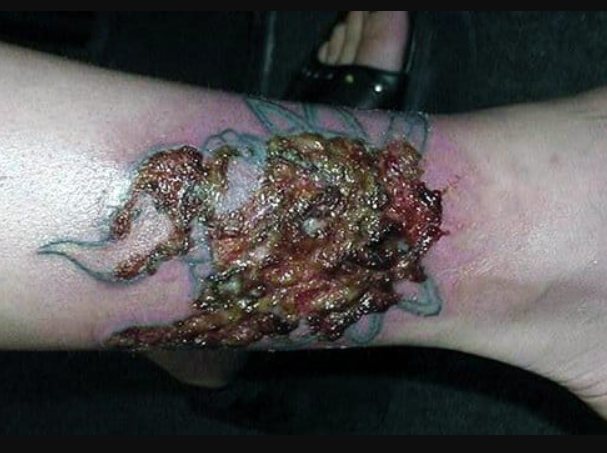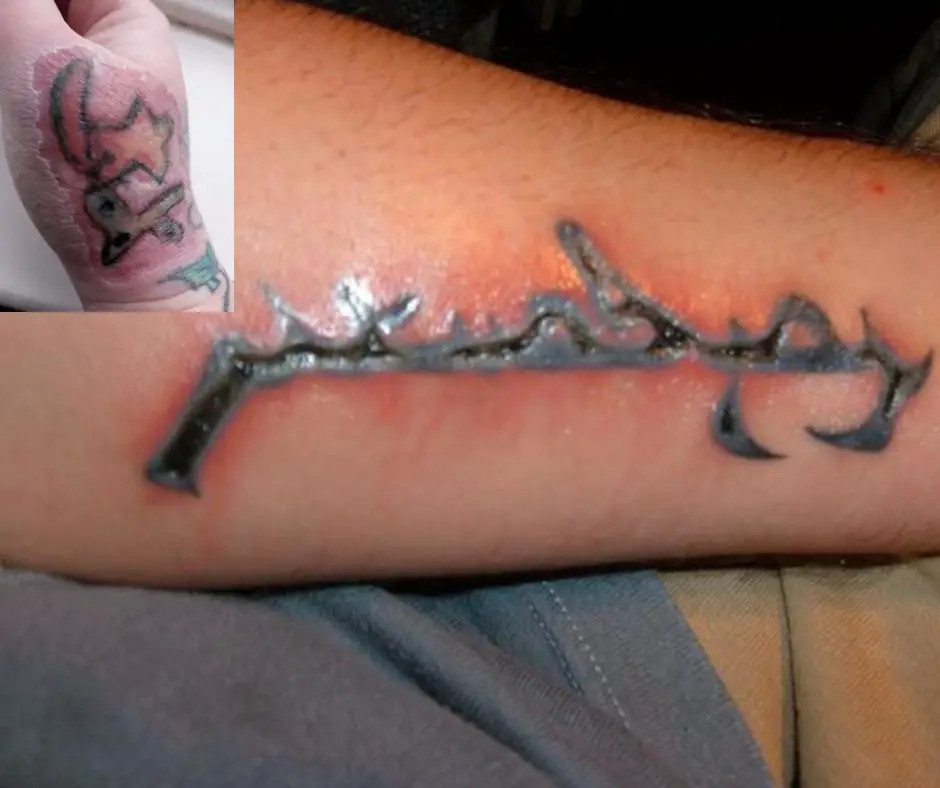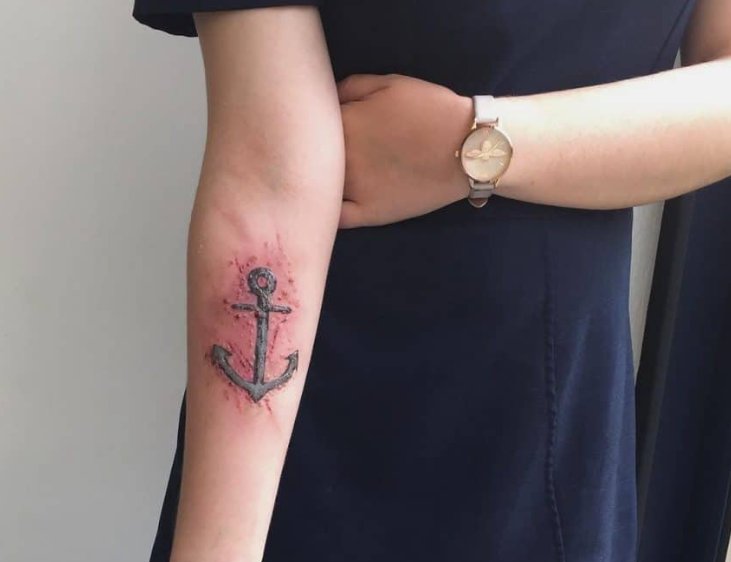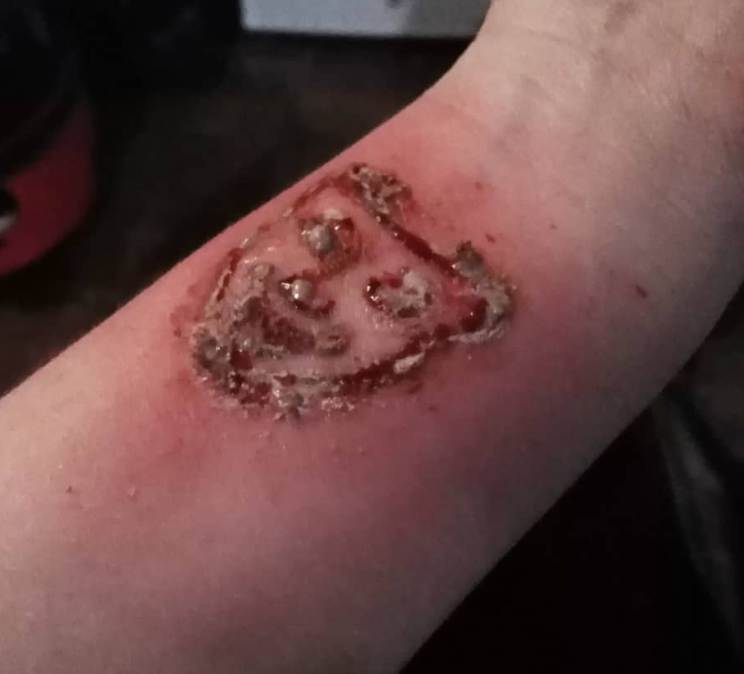Before deciding to have a tattoo, there are many things people should know. Design and placement are only two of the many things, but what to do in the event of a skin infection is something that not many people think about in advance.
Tattoo infections are rare; however, you should expect some discomfort after getting inked; how common they are will depend on how well you take care of them once the tattoo artist closes.
So today we will talk in depth about the cause of tattoo infection here.
What Causes Tattoo Infection?
01. Dirty or Expired Ink:
This category includes ink that has gone bad, ink that has met a used needle, and ink that was prepared at home and used for tattooing. Not all tattoo ink is safe, according to a warning from the Food and Drug Administration to tattoo studios, clients, and people purchasing at-home tattoo kits. And for that Pneumonia is a condition where germs from the ink spread throughout the bloodstream.
Fever, chills, and sweats are the typical symptoms, and anyone with a history of heart or circulation issues is especially at risk. Bumps on the skin, discharge, redness, swelling, blisters, or intense pain at the spot are all possible symptoms of less serious infections.
02. Homemade Kits:
Home improvement kits frequently include stick-and-poke tools, which can be challenging to thoroughly sanitize. Additionally, an inexperienced tattoo artist may likely tattoo you in an unhygienic setting, like your friend’s random basement. With the popularity of “hand poke tattooing” rising, health experts have concerns about the risks associated with Homemade tattoo materials.
To do this, an ink-soaked needle must be manually poked into the skin to produce the same effects as an electric tattoo machine.
03. Unclean Practices:
Maintaining good hygiene is essential to ensuring that you stay clear of these issues when being inked. Making sure that a tattoo studio keeps to tight guidelines for hygienic practices is crucial when choosing one. Infections can result from wearing gloves, reusing supplies, improperly washing, and wrapping the tattoo, and neglecting to sanitize the area in between sessions.
04. Unauthorized Tattoo Studios:
To stay open, licensed tattoo studios must pass a health agency inspection and adhere to a set of hygienic and safety standards. Health organizations’ established safety and sanitary regulations are probably not followed by an illegal tattoo studio.
05. Poor Immune System:
Materials in the ink may cause allergies in certain people. It’s critical to know what ingredients your tattoo artist uses and whether you have any allergies to any of them. Because tattoo ink is not FDA-controlled, it is possible that certain ingredients are not stated. For this reason, it is crucial to consult a respected tattoo artist who utilizes high-quality ink. Also, it’s a basic manner for an artist to know everything regarding the health issues of his/her clients.
06. Lack of Aftercare:
One of the most frequent causes of tattoo infections is poor aftercare. To prevent infections in the inked region, most tattoo artists will offer aftercare instructions. Infections may result from the client’s improper attention to the aftercare instructions. It’s crucial to heed the advice of your tattoo artist regarding appropriate aftercare.
After Care of Tattoo
Here are some simple after-care methods to be used for your concern.
- Within three to five hours of the tattoo artist finishing their work, remove the bandage.
- After washing the tattooed area, wash your hands with warm water and antibacterial soap. Using a paper towel or fresh cloth towel, wipe dry.
- Give the skin five to ten minutes to air dry. Next, wipe on a very thin layer of cream, such as Aquaphor or Vaseline.
- For four days, repeat the washing, drying, and moisturizing steps three to four times a day.
- Avoid picking or scratching the tattooed area if a thin, flaky layer of skin begins to peel off. You can now move on to a moisturizer; for the first few weeks, avoid allowing your tattoo to become dry.
N.B To know the best after-care products in the market we have an article which covers the products in detail. Just have a look.
Key Things to Remember
- In rare cases from the doctors and research severe bacterial infections after tattooing have been reported
- Among the main risk factors are inadequate hygiene practices and pre-existing medical disorders; tattoo inks are probably underestimated as a cause of bacterial infection.
- To safeguard the health of customers, it is strongly advised that tattoo Parlors, tattoo artists, and manufacturers of tattoo ink implement mandatory quality control procedures.
- Doctors have a responsibility to fully advise their patients about the risks and possible side effects of getting tattoos.
Is Tattoo Infection Related to Cancer?
Skin cancer concerns have been raised by a study that found cases of overlap between reactions at the tattoo site and squamous cell carcinoma. However, the evidence for a connection between tattoos and skin cancer is insufficient. Nonetheless, these researchers advise notifying national skin cancer registries of any occurrences of skin cancer discovered near tattoos.
Furthermore, if skin cancer does develop, it may be more difficult to diagnose as some of the changes that may occur could be mistaken for skin cancer.
What Type of Legal Steps You May Take if You Have Tattoo Infection
Infections from tattoos are rare. However, there is a legitimate risk associated with getting inked. Put another way, even if a tattoo artist does everything perfectly, a tattoo infection could still occur. Nobody is responsible for your infection when this occurs.
However, you might be able to file a personal injury claim if your tattoo artist and studio did not use reasonable care when applying your tattoo. Your lawyer and you may be able to establish misconduct to get damages for your pain, suffering, emotional distress, and physical deformity. The tattoo studio or artist will almost certainly carry liability insurance.
To resolve your case, your lawyer will have to make deals with an insurance provider. Your lawyer may need to sue the artist or store if a settlement cannot be reached. If you have a tattoo infection, get assistance from a personal lawyer.
Related Article:
6 Dangerous Stages of Tattoo Infection Need to Treatment
5 Common Signs to Spot Your Tattoo Infection Easily

My name is James Dalton specialize in developing research-based content on the fashion & lifestyle industry. And has good experience in tattooing. Tattooing is my hobby and worked for some years as a tattoo artist.




